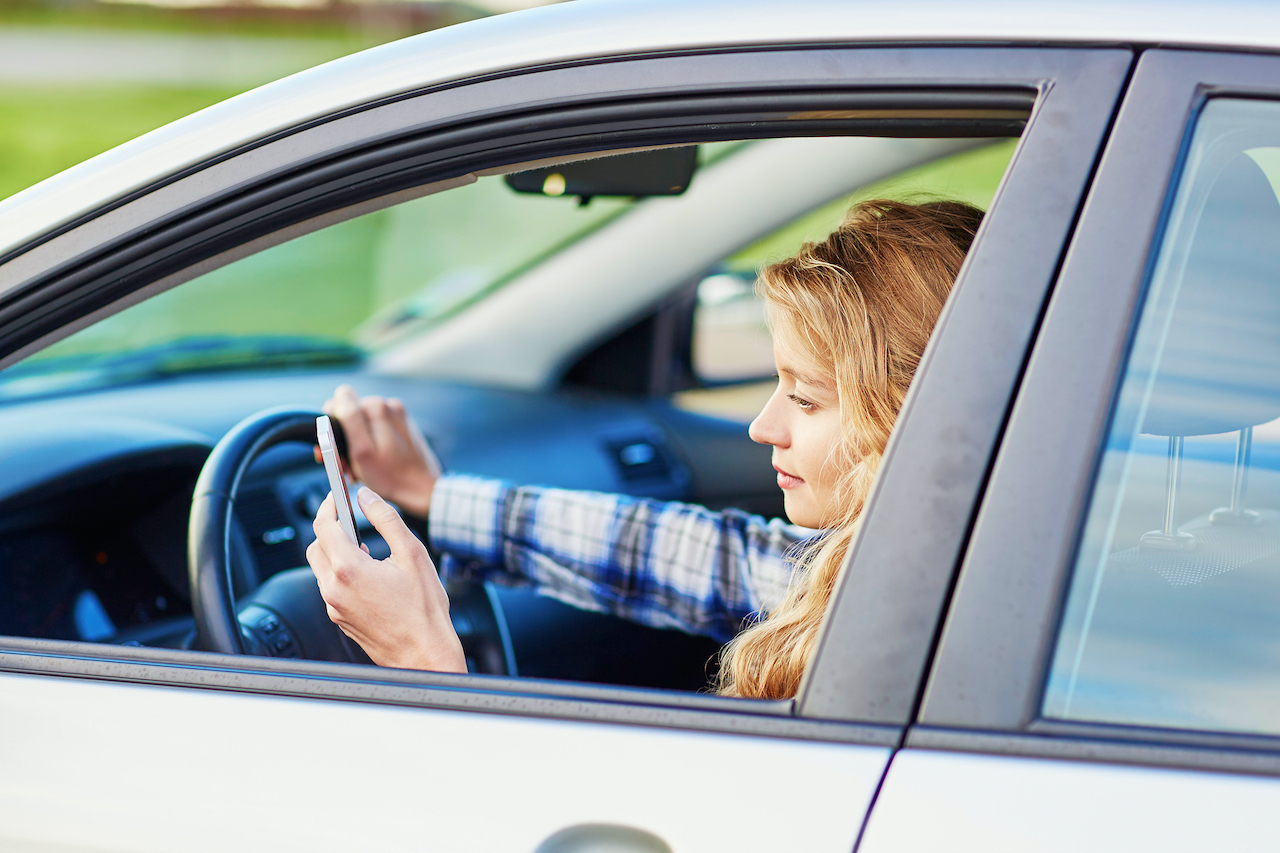New Florida Cell Phone Law (2019)
New Cell Phone Law Passed in Florida
Florida has a new cell phone law about texting while driving, effective today – Monday, July 1st. The law has been cited by the Florida Statute as the “Florida Ban on Texting While Driving Law.”
Is it illegal to text and drive in Florida?
Yes. According to the new law, texting while driving is now a primary traffic violation, meaning a cop can stop you on the sole suspicion of texting while driving. According to Florida Statute 316.305(3)(a), this law applies to “manually typing or entering multiple letters, numbers, symbols, or other characters into a wireless communications device” such as a cell phone or tablet.
Florida Cell Phone Law 2019
In addition to the revision on texting while driving, the new Florida cell phone law prohibits sending or reading data on a cell phone or other wireless communications device in the form of texting, emailing, or instant messaging while operating a motor vehicle.
Consequences of Texting and Driving
A first offense for texting while driving in Florida is a non-moving violation that comes with a $30 fine, plus any related court costs and other fees. The first offense of the Florida Ban on Texting While Driving Law will not add any points to your license at this time.
A second texting while driving offense within five years is a moving traffic violation that comes with a $60 fine, 3 points added to your license, any related court costs, and possibly other fees.

New Law, New Legal Challenges
The new Florida cell phone law banning texting while driving was created and passed to minimize, if not prevent, distracted driving by making drivers put their cell phones down and focus on the road. We hope to see a drastic reduction in Florida auto accidents as a result of people following this new law. However, and while there are exceptions, the new law upgrading texting while driving to a primary offense is a new legal tool for law enforcement to use against the public.
This update to the Florida Ban on Texting While Driving Law could create a new angle for pretextual traffic stops. Pretextual traffic stops are often used by officers as a way to stop and search a vehicle they suspect contains one or more persons involved in a crime. No matter how minor the violation, police offers must observe a legitimate traffic violation in order to stop a driver. Not since seatbelts became a basis for a traffic stop has the motoring public – particularly youth and ethnic minorities – been at such a great risk of being subject to a pretextual traffic stop.
In their naïveté, the Supreme Court Justices abolished the right to challenge pretextual stops, ruling that it was the objective facts – not the officer’s intent – that mattered. We are worried that with this new texting and driving law we will see traffic stops based on purported texting violations that then lead to arrest of “the usual suspects.”
Your cell phone really is a double-edged sword; as great as it can be for documenting your encounters, your phone may now become a liability on the road. Additionally, if you wish to try to defend yourself while offering your phone as evidence that you were not texting, you need to take careful steps to ensure your digital privacy. After all, it’s in your best interest that an officer doesn’t get a chance to thumb through your phone and its data.
What to Do If You’re Stoped for Texting While Driving
If you are stopped by the police, remember that you do not have to turn over your phone without a warrant! Don’t be tempted to let an officer look at your phone to be sure you weren’t texting. Call our hotline 24/7 and speak to one of our on call criminal defense attorneys. Our advice may be the difference between you driving home or becoming a backseat passenger (not in an Uber) who has to find a way to make bail.
Our Hope for the Florida Texting and Driving Law Update
There is no argument that texting while driving is not dangerous. The Florida Department of Highway Safety and Motor Vehicles (FLHSMV) reported more than 51,000 crashes involving distracted drivers statewide last year. The number of traffic fatalities in Florida has topped 3,000 each year since 2016, a statistic some law enforcement officials say is due in part to distracted driving.
Texting and driving is as bad as drinking and driving, so use handsfree setups, enable the texting while driving block in your phone settings (and your teenagers' phones), and drive safely. But be mindful of your civil rights and don’t let a well-meaning law be used for the wrong purpose.
Sources
 Start Your Case Online
Start Your Case Online
- 200+ Years Combined Legal Experience
- 24/7 Support
- Top Rated Criminal, family, and Injury Attorneys
- Flexible Lawyer Payment Plans
- Call Today 386.222.6677